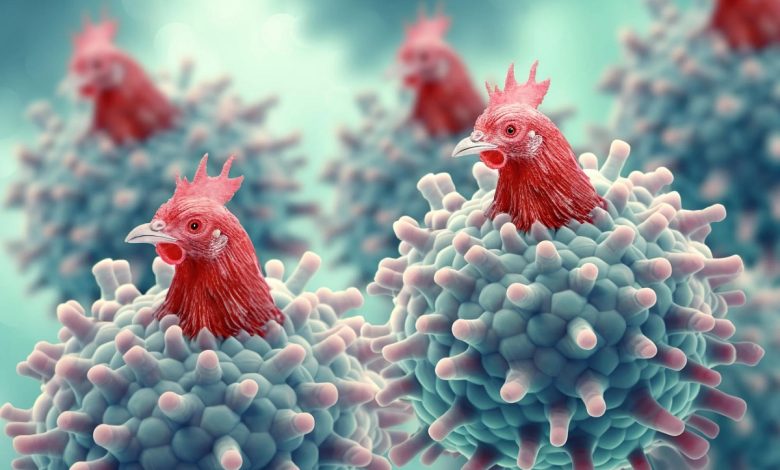Avian Influenza Virus May Infect Horses Without Symptoms: A New Concern

Avian Influenza Virus: According to recent research, the avian influenza virus (H5N1) can infect horses without causing any symptoms, raising concerns about its silent spread and potential mutation risks.
This new finding adds an unexpected dimension to the challenges posed by H5N1, which is regarded as a leading candidate for causing the next pandemic.
Avian Influenza Virus, Scientists at the University of Glasgow identified antibodies against this virus in the blood samples of horses from Mongolia. The results, published in the journal Emerging Infectious Diseases, suggest that horses could be vulnerable to H5N1 in areas where bird flu is prevalent.
Professor Pablo Murcia, who led the study, warned that horses might act as intermediaries for spreading the virus to humans, given their proximity to people. This calls for vigilant monitoring and precautions, as the presence of the virus in horses could increase human exposure risks.
Avian Influenza Virus, Furthermore, the researchers speculate that horses might serve as mixing vessels for new influenza strains. Past studies indicated that horses could contract equine influenza (H3N8), and simultaneous infections with H5N1 could lead to genetic exchanges between the viruses, enabling rapid evolution and mutations.
Avian Influenza Virus; Global Concerns Over H5N1 Spread

Avian Influenza Virus H5N1, which has existed for decades, primarily affects poultry. However, in recent years, a new strain has spread globally via migratory birds, infecting various mammalian species.
In the United States, the virus has been detected in cattle across 15 states, with over 700 herds affected. About 60 farmworkers exposed to the virus reported mild symptoms. However, scientists fear the virus could adapt to survive in mammalian cells, increasing the risk of human transmission.
Dr. Tulio de Oliveira, a pandemic response expert from South Africa, voiced concerns over the prolonged circulation of H5N1 among animals and humans, warning of its mutation potential.
Avian Influenza Virus, This situation underscores the urgent need for proactive measures to prevent a future pandemic fueled by this adaptable and evolving virus.
Also Read:
Bleeding Eye Virus: What Is The Deadly “Bleeding Eye Virus”?
HPV Virus: The Way Of Transmission, Symptoms And How To Prevent HPV Infection In Women




